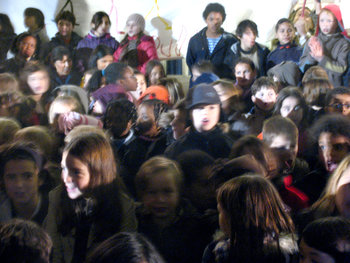
Internet Generation
The defining characteristic of Generation Z is that they are the first generation to have no experience of the world before the internet was commercialized. They often had smartphones and social media accounts from a young age. This had a profound impact on their beliefs, behaviors and sensibilities. For example, Generation Z may have been influenced by filter bubbles, as it is easy to block out ideas that you don't agree with on social media and find people who think alike. Other aspects of social media, such as public shaming may have also had an intense impact on Generation Z.Helicopter Parents
The parents of Generation Z, Generation X and the Millennials, tend to be involved and protective as parents. This trend has been termed helicopter parent, an analogy to the parent always hovering above their children as a protective force. Generation Z spent more time with their parents, were less rebellious and are less independent as compared to the childhood of other generations such as Generation X. For example, Generation Z are less likely to drink, go on a date, or go out alone with friends without the involvement of parents as compared to Generation X at the same age."Generation Snowflake"
It is common for the media to portray a new generation in a negative light. This may be due to the social conflict that tends to exist between generations. A common theme of criticism of Generation Z is that they are self obsessed, prone to taking offense, easily view themselves as victims and demonstrate a low tolerance for disagreement. This is summed up in an analogy to a snowflake that is unique but completely vulnerable.Fear of Youth
A common theme of media coverage of generations is that a generation is heavily criticized as youth and then praised as they become older. As youth, the Baby Boomers were the "me generation" as they were thought to be self-involved and narcissistic. Generation X were accused of being "slackers" with a low work ethic and disregard for norms.Generation Z vs Millennials
Millennials have some experience of the world before the internet was commercialized. They also had helicopter parents and tended to delay the milestones of growing up such as dating or moving out of their parent's home. The differences between Generation Z and Millennials is an active area of research, analysis and debate with no clear consensus yet emerging.Notes
Generations are generally 17-18 years. As such, the last of Generation Z were born around 2012. The date range of Generation Z with emerge with time as generations are often defined by a sudden shift in lifestyle and attitudes that would not yet be apparent as the generation is still young.The descriptions above apply to the United States and may be somewhat applicable to other developed nations. As with any overview of an entire generation, these descriptions are extremely broad generalizations. In reality, members of a generation are diverse individuals.| Overview: Generation Z | ||
Type | ||
Definition | A proposed name for the demographic cohort of people with birth dates after 1995. | |
Also Known As | iGeniGeneration | |
Related Concepts | ||
















